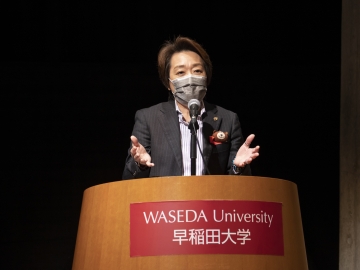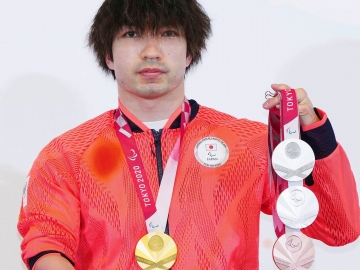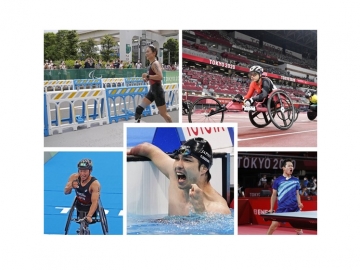The Olympic and Paralympic Project Promotion Section
Evolving university
Olympic and Paralympic Project Promotion Section
We will go all out to participate in the Tokyo Olympic and Paralympic Games to be held for the second time in Tokyo
The Olympic and Paralympic Project Promotion Section was established in 2016 to support the Tokyo 2020 Olympic and Paralympic Games.
Waseda University sent many athletes to the PyeongChang Winter Olympic and Paralympic Games in February 2018 and many medals were brought home. What are our plans for 2020? This is answered by Isao Muraoka.
Isao Muraoka: Vice President and Chairman, Olympic and Paralympic Project Promotion Committee.
Muraoka graduated from the School of Education, Waseda University in 1973 and completed graduate school at Juntendo University.
After serving as assistant professor at the School of Education, and professor at the School of Human Sciences, Waseda University, he was appointed the current professor for the Faculty of Sport Sciences, Waseda University. Muraoka holds a doctorate in medicine.
Enhancing Waseda University’s presence through the Games
Waseda University have cultivated athletes with excellence both in academic and sports. The university sent more than 400 athletes to the Olympic games since 1920, and many medals have been brought home by our students and graduates. So we are proud as a university that has led the world of sports in Japan.
For this reason, we should go all out for the Tokyo Olympic and Paralympic Games to be held in 2020 (the “Tokyo 2020 Games” or “Games”) to ensure that our athletes will achieve results and that the Games will succeed. Demonstration of our commitment to sports through the event will also help enhance our presence in the world. In 2016, we organized the Olympic and Paralympic Project Promotion Committee and established the Olympic and Paralympic Project Promotion Section (the “Promotion Section”), which is to carry out the proposals made by the Committee.
Five activity guidelines to utilize our facilities and human resources
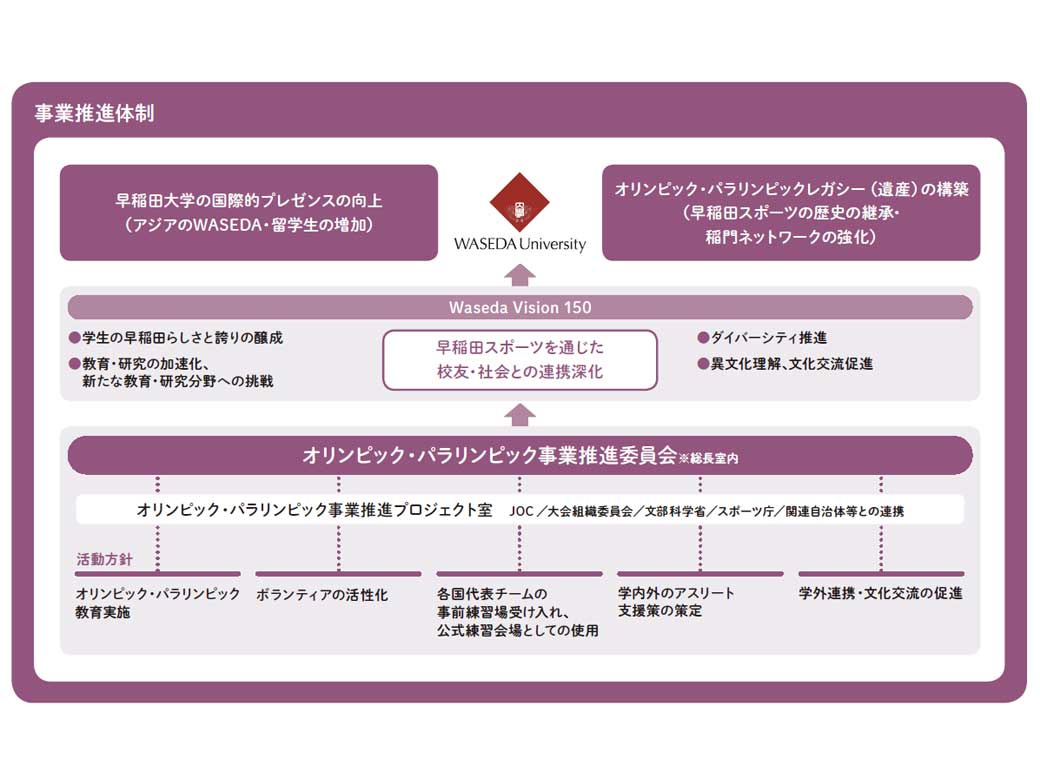
We at the Promotion Section are advancing projects along the five activity guidelines. As to “Support of athletes on and outside campus,” we will continue support of athletes and leaders that we have on campus who are aiming to contend in the Tokyo 2020 Games. Outside our campus, we invited track and field athletes from Sri Lanka and Laos last year to have a joint training camp with our track and field club members for mutual buildup. Regarding “Provision of the use of our athletic facilities to overseas athletic teams,” we have agreed with Italy on the Italian athlete team’s use of our facilities such as pools and playgrounds on our Tokorozawa campus for their pre-Olympic training camp. Arrangements are being made to have the Waseda Arena, which is scheduled to be completed in 2019, used for the Games as well.

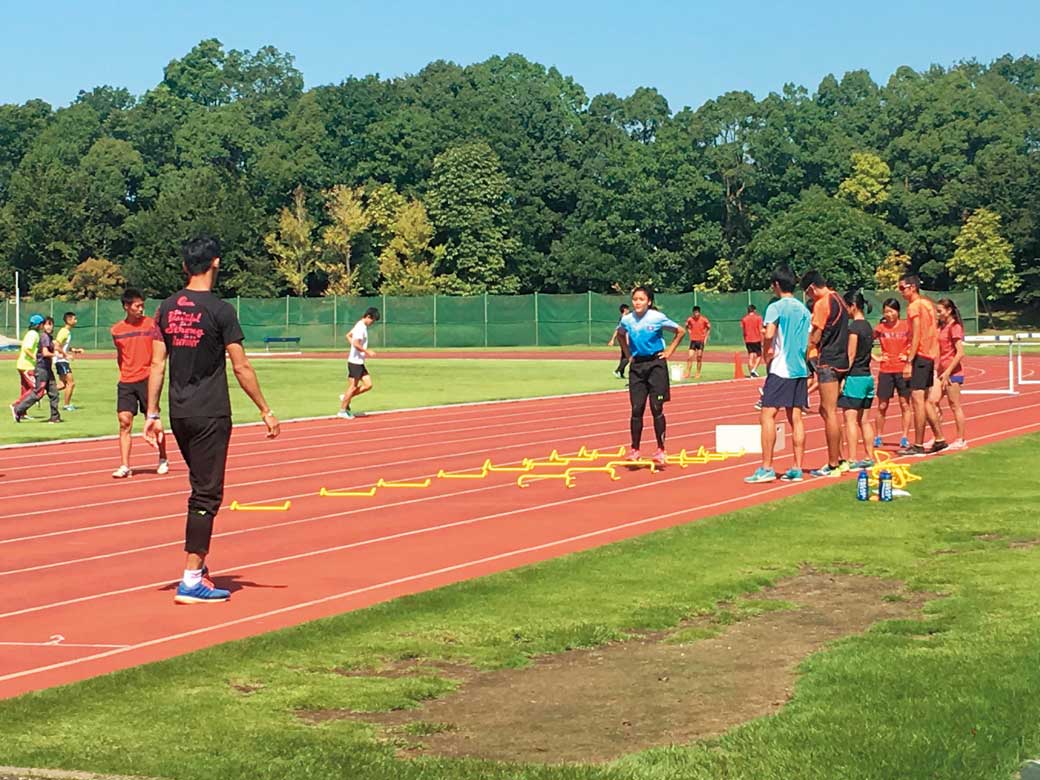
In research and education, we are holding lectures as part of “Implementation of education on Olympic and Paralympic Games” at the School of Sport Sciences, the School of Education, and Global Education Center. Outside our campus, we are promoting “Academic and Cultural Exchange” by launching official educational programs coordinated by Saburo Kawabuchi.
One of the recent topics on our activities is that we sent six student volunteers to the PyeongChang Winter Olympics officially from our university in February this year. We plan to dispatch student volunteers to the Tokyo 2020 Games as well. We would like to further promote “Active volunteer engagement,” by leveraging the experiences we have earned.
The Promotion Section is advancing various projects mostly as scheduled along with our original plan. However, partly because the details of the Games have not been settled yet, there remain issues to be sorted out; for instance, what to do with the classes to be held during the Games and how to recruit volunteers for the Games. Particularly, preparation of barrier-free facilities and scholarship for para-athletes is an important issue. We plan to prepare steadily by closely monitoring the guidelines of the Tokyo Organising Committee of the Olympic and Paralympic Games and the Tokyo Metropolitan Government.
Aiming for the Games where all our students and faculty members can participate
What we are trying to achieve for the Tokyo 2020 Games is to offer our facilities for pre-camp and training until and during the Games, to send 32 or more students and graduates from Waseda University to the Games as well as to encourage other students to actively participate in volunteer activities, to promote communication among athletes, students, and visitors from overseas. Our students will earn valuable experience through communication with world’s top athletes and cross-cultural exchange with people from other countries, which will remain as intangible legacy that cannot be obtained in class or through study abroad. To this aim, we at the Promotion Section will make various cross-cultural exchange plans before and after as well as during the Games.
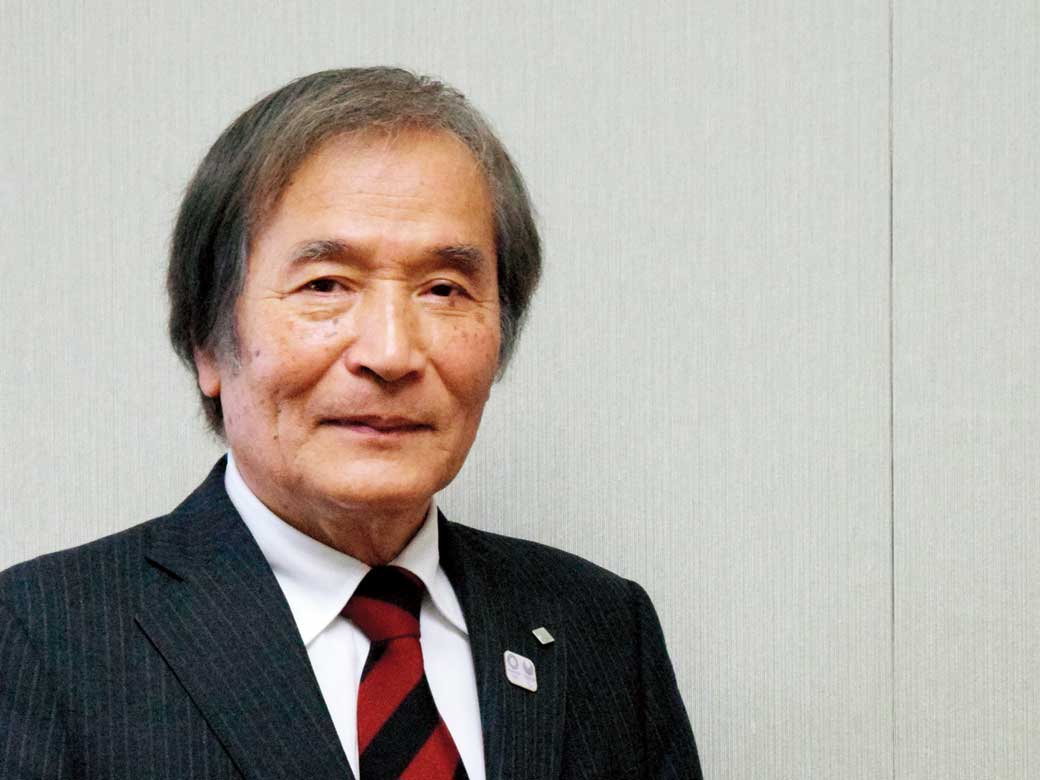
Professor Isao Muraoka
Students who were enrolled in our university in and after 2017 will actually experience the Tokyo 2020 Games. Tokyo is lucky to host the Olympic Games for a second time, and people will come from many countries for the event. So why not make most of this opportunity? I would like all people including students and faculty members to be actively involved in the Tokyo 2020 Games, as well as athletes, with a belief that they are all “participants” in the Games. If many people get involved in the Games, the Tokyo Olympics will no longer be just a transient sports event, building intangible legacy in economy, education, culture, and other fields. We at the Promotion Section will prepare opportunities to involve many people, such as support of athletes, backup of the Games, and cross-cultural exchange.
Voice of a volunteer student who participated in the PyeongChang Winter Olympics
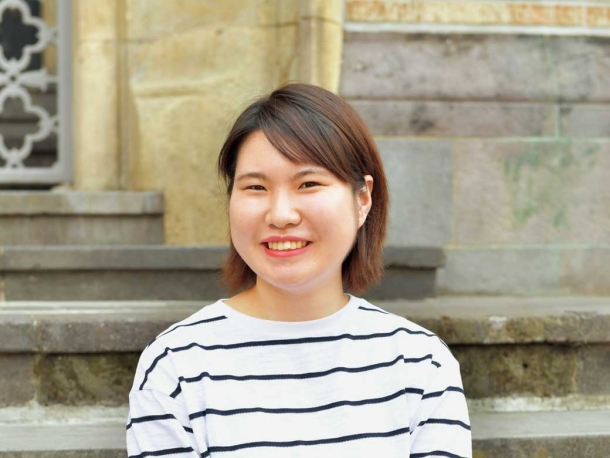
Lim Youngji, student at the School of Education
In the PyeongChang Winter Olympics, I worked mostly as a guide and translator at galleries and aisles in a speed skating stadium. There were about 300 volunteers assigned to the venue, but few of them spoke English. As activity directions were given in Korean, I had to translate them into English for Japanese volunteer students. It was a good experience, though, that I was able to interact with Korean and Japanese volunteers. I want to improve my Japanese and English so that I can contribute more to the Tokyo 2020 Games as translator and interpreter.

